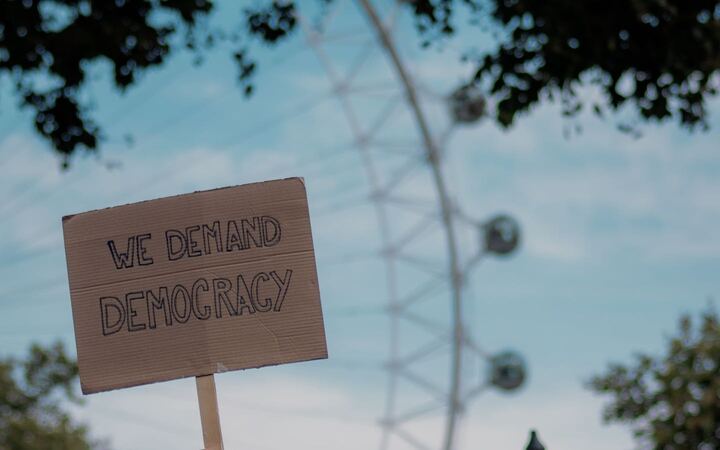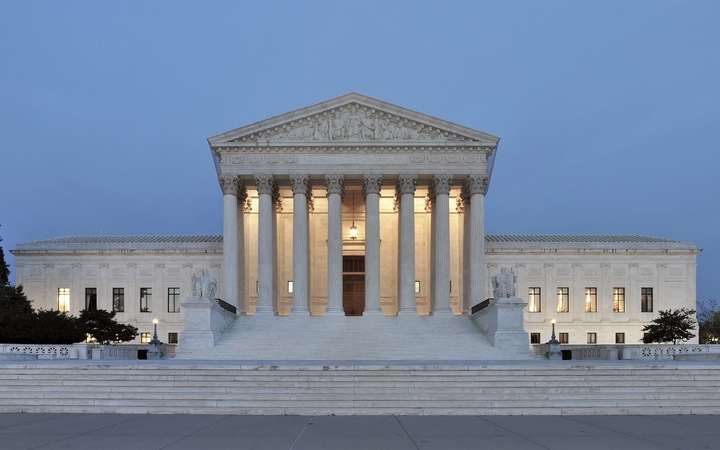Have you ever noticed that reality has some properties that are quite annoying? For example, have you noticed that some people do bad things? And yet those same people sometimes have interesting ideas?
Occasionally, I’ll bring up an idea in conversation and someone will gently remind me that the person who came up with the idea is bad. I’ve never been sure what to do with that information.
Is this a hint that I shouldn’t be talking about bad people?
I stress that I am open to this idea! For example, I’ve long felt that we should pay less attention to the personal story of school shooters.
So, should we avoid talking about bad people? In the extreme, this would mean we try to pretend they never existed, neither the person nor their ideas.
This seems non-viable.
For example, take Ronald Fisher. He basically created modern statistics and led biology’s modern synthesis of natural selection, genetic variation, and Mendelian inheritance. By some measures, he is the most influential scientist of all time. But he also had now-disfavored views on race and eugenics and used his immense influence to argue that tobacco was harmless, tainting my cherished “correlation doesn’t imply causation” arguments forever.
You may or may not think Fisher is bad given his historical context. I may or may not think that. The point I’m trying to make is that it’s impossible to delete him from history. He invented p-values and variance. By now, all of science depends on his ideas.
If that doesn’t work, should we do the opposite? The other extreme would be to never cancel anyone. If someone is bad, let them be punished (or not) by the legal system. But regardless of what happens there, we keep talking about their ideas, and in fact keep being friends with them.
This also seems non-viable.
Social punishment is a core part of how our species works. If you think back to pre-historical times when we all wandered around in tribal bands, “gossip” was the primary way that we enforced the social contract on each other. Now, in modernity, we have laws and police and human resource departments and ethical review boards and home owners associations. All these things mean that gossip doesn’t have as large a role to play. But it seems crazy to think that our formal institutions cover all situations, that good-old gossip has no role anymore.
Take a beautiful and charming sociopath who likes to date people for a few months, get them to fall in love, and then break up with them with maximum cruelty. They film the breakup, and post it online for lolz. This is not illegal (except perhaps the filming), and I think shouldn’t be illegal (except perhaps the filming). But also, I think this person is very bad and we need some way to punish their behavior.
And what if said sociopath happens to be a scientist or author or public intellectual? One hope would be to cancel the person, but not the ideas. But how does that work? Do you go to their talks at conferences? Do you chat with them at coffee breaks? Do you invite them to parties with their peers? Do you send young people to work with them? If you refuse to cancel the ideas, you won’t have many tools left to cancel the person.
So then what should we do? Here are some policies that people seem to use:
Policy 1: Ignore badness. Continue to discuss the ideas of bad people, continue to be friends with them, etc.
Policy 2: Gossip only. Continue to discuss ideas from bad people and pretend to be friends with them, but gossip about them behind their back so everyone knows they are bad.
Policy 3: Social ostracism. Avoid talking to bad people at parties or even talking about them as people, except to say that they’re bad. But still discuss their ideas, cite them, etc. (Somehow draw a line between the person and the idea.)
Policy 4: Social ostracism plus decontextualization. Again avoid talking to bad people at parties. And again continue to discuss their ideas, but never mention where the ideas came from. Hope that history forgets their evil inventor.
Policy 5: Full cancellation. Avoid talking to bad people at parties. Also avoid discussing their ideas. They never existed.
Policy 6: Cancel non-cancellers. Avoid talking to bad people at parties. Also avoid discussing their ideas. Also avoid anyone who doesn’t themselves avoid the bad person.
Policy 7: Transitive cancellation. Like the above, except you cancel bad people and anyone who doesn’t cancel bad people and anyone who doesn’t cancel anyone who doesn’t cancel bad people, ad infinitum. Never cite a paper that cited a paper that cited a paper that cited the bad person. Never go to a party with anyone who went to a party with anyone who went to a party with the bad person. Completely disconnect from any network that has any path to the bad person.
That’s a wide spectrum. Some people tend to be more lax, others more severe. But you also probably want to adjust the severity for each particular bad person. When you do that, here are some factors to consider:
Factor 1: Does it matter if someone has been convicted?
Suppose someone has been formally “tried” and “convicted” by some entity, like the government or their employer or a professional society. How does this change things?
One theory is that you should now be more mean, since you’re now more confident that they’re guilty.
But there’s a strong argument that you should actually be less mean. If my neighbor burned down an empty school in the middle of the night, I’d steer clear of them. But if they went to jail and apologized, I might give them another chance.
Society seems to operate on the idea that a criminal who evades punishment should be scorned, but someone who “serves their time” should be re-integrated, or at least less scorned. This fits nicely with the idea that the modern purpose of gossip is to fill the gaps left by our formal mechanisms of justice.
Or maybe convictions shouldn’t change anything? Perhaps our formal mechanisms of justice are supposed to come on top of social punishment? Who decides?
And if someone is convicted, does it matter if their punishment seems appropriate? If my neighbor who burned down the school paid a $10 million fine and spent 20 years in jail, I’d be more likely to forgive them then if they paid $100 and did 20 hours of community service. Should I do that, or should I not second-guess the system?
Factor 2: Does it matter if the bad actions are related to their ideas?
If I like to burn down empty buildings at night, is it worse that I’m a fire-safety researcher than if I’m a marine biologist?
My intuition is yes. I find it harder, for whatever reason, to forgive Fisher for the statistical crime of defending tobacco than for his views on eugenics. But wait a second—Fisher was also a biologist. So maybe this just proves that I spend more time thinking about bad correlational studies than I spend thinking about eugenics? And that my intuition is not to be trusted?
The best consequentialist justification I can find for being harsher when bad actions are related to bad ideas is that in these cases social punishment tends to work better, since the same group of people that have the expertise to judge badness also have the power to administer social punishment. But I’m highly unsure.
Factor 3: Does it matter when the bad person did the bad actions?
You might think that it’s pointless to cancel Fisher, since Fisher is currently dead and immune to further incentives.
But a lot of intellectuals hope, after shuffling off this mortal coil, to live on in the world of ideas. So posthumous cancellation probably does have an impact.
Incidentally, posthumous cancellation is pretty unique as far as incentives go. For example, will future generations judge us for our treatment of animals? If I go buy some factory-farmed meat tomorrow, I think there’s near-zero risk anyone will really judge me for it in my lifetime. But people 200 years from now?
On the one hand, I personally think you have to apply some degree of moral relativism to people in the past, simply because it’s a lot easier to come to the “right” conclusions when you’ve been indoctrinated with them since birth.
On the other hand, I really wish we were all more accountable to the future. So maybe we should lean into this.
Factor 4: What’s the goal?
The goal of cancellation isn’t necessarily just to punish misbehavior. It might also be a goal that the people we revere set a good example. On this theory, you might still want to avoid talking about bad dead people, even if you don’t think that posthumous incentives do anything.
Factor 5: Does uncertainty matter?
Suppose that you know that Alice killed a frog, and you think that there’s a 0.0000000000001% chance that Bob is Mecha-Khan. (Assume that being Mecha-Khan is equally bad as killing 1 quadrillion frogs.) Do you treat Alice and Bob the same?
Factor 6: Are you sure the gossip is accurate?
Some years ago, I worked at a place where fancy people had private offices clustered around the center of the floor and everyone else was spread out in a giant open office that wrapped around the center. One day a fellow fancy person asked me if I’d be willing to trade offices so he could be closer to some people who had desks near mine. I agreed, and he said he would coordinate. A month later, I hadn’t heard anything so I stopped by and asked him if he still wanted to switch. He said, “Oh, yeah, soon!” But still, nothing happened. This repeated for the next 3-4 months, after which I gave up.
A year later, I had a going-away party for myself (don’t be sad) and invited several of the people at the nearby desks. After a few drinks, two of them asked, “Why did you refuse to switch offices?” Apparently, everyone “knew” that he had asked to switch offices, and I flatly refused.
In their defense, I don’t remember anyone scorning me. And it’s apparently very easy to believe this kind of thing about me. (If I had a good reason, I might well have refused, albeit after explaining why I thought that maximized overall utility.) But in this case… what the hell?
Factor 7: Are you willing to impede further deliberation?
Say someone is really bad, so you decide to apply a harsh policy where you refuse to talk about them. There’s a cruel irony: Your punishment makes it harder for other people to verify that your punishment is just! How are they supposed to work through all the factors if they can’t even discuss someone? What you were wrong?
Still, there’s a famous 20th existentialist German philosopher who was an enthusiastic Nazi. I’ve briefly looked at his ideas, and they seem interesting. But I refuse to go deeper—or even mention his name—because I feel like I can get my existentialism elsewhere, and because fuck him for being a Nazi. By doing this, I make it harder for you to check my work. That would be sad if he wasn’t actually a Nazi, but I’m sufficiently confident that I think that’s a price worth paying.
When you choose a social punishment, you’re not just weighing a bunch of complicated factors to choose a penalty. You’re also choosing if you want to interfere with other people’s ability to re-examine those factors.
I’m told that rather than exclusively reveling in confusion and perversity, writing is also sometimes used to advance specific theses.
So OK, here’s what I think I’m trying to say:
-
People rightly worry about social punishment and “cancel culture”. It can be inaccurate and random and unjust and suffocating.
-
Still, social punishment is fundamental to our species. In our natural state, it was our justice system.
-
We now have courts and police. These do much of what social punishment used to do, and hopefully do it better.
-
But social punishment remains absolutely necessary in many circumstances.
-
There are many levels of punishment, and finding the socially optimal level is hard.
-
In particular, it’s hard because of the confusing boundary between institutional punishment and social punishment.
-
It’s also hard because when bad people are scientists or writers, there’s no easy way to punish them without also punishing their ideas.
-
It’s also hard because the highest levels of social punishment involve not talking about the person and maybe coercing other people to also not talk about them, which shuts down rational discussion.
So it’s complicated. Social punishment is part of who we are, and it’s unrealistic to pretend we aren’t going to do it. We don’t seem to do a great job of finding the socially optimal level of social punishment. But that depends on a lot of factors and it’s hard to make firm recommendations.
The one thing I would suggest is that if a strong social punishment has been applied and if we find out that the person was innocent, then we all have a responsibility to loudly correct the record.
In 2006, three members of the Duke University lacrosse team were charged with rape. For a few weeks, they were among the most hated people in the world. The lacrosse coach was forced to resign and 88 Duke professors took out an advertisement that implied guilt. Then, it emerged that some of the players were not even at the location at the claimed time, they were declared provably innocent, the charges were dropped, and the district attorney who filed the charges was disbarred and briefly jailed for misconduct.
This seems pretty clear-cut. So why do so many people seem to know the start of the story but not the ending? Why do I feel so gross after writing the previous paragraph? I think it’s because society has applied a “transitive cancellation” social penalty, and we instinctively sense that it’s dangerous to promote the idea that they might be innocent.
The three players each won around $20 million in damages from Duke. In some sense, this seems fair. I imagine this incident follows them every time they apply for a job or make a new acquaintance. But notice something: The idea of “reputational damage” is premised on the idea that reputations can’t be fixed, that once gossip has started, it can’t be stopped.
And if you’re into coercive transitive cancellation, note that fixing this problem is totally compatible with coercive transitive cancellation! Say that Alice has been declared bad. If Bob tries to prove Alice is actually good and Bob fails, then go ahead and scorn Bob, too. But if Bob succeeds, then you should celebrate him for his courage and conviction. Make the risk more two-sided.
In retrospect, the people quietly reminding me that someone was bad were probably using a strategy that’s somewhere between gossip only and social ostracism. Given all the complexity, I think that’s probably pretty reasonable?
Thanks: Jason Crawford, Steve Newman, Jennifer Morales, Andrew Miller

















